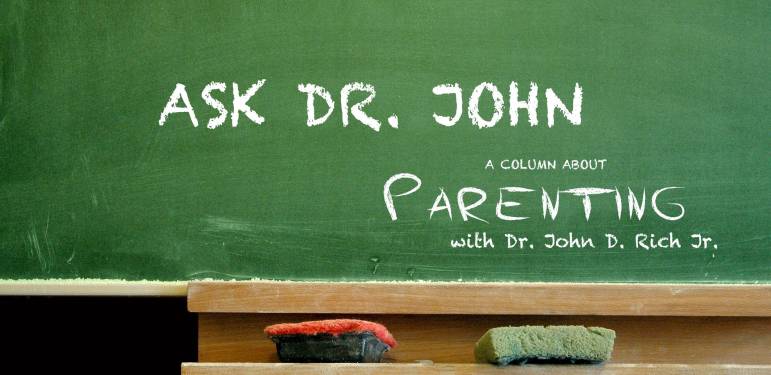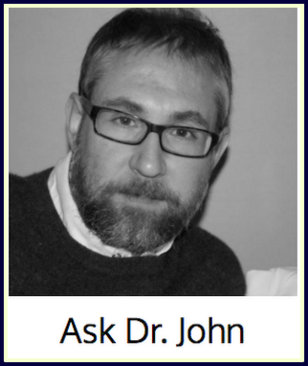
 Being a good father is a mystery to many people. It’s no secret that fathers are encouraged to be more involved in the lives of their children than before. In fact, since 2000, media images of fathers as emotionally expressive, nurturing and caring have exploded. (e.g. Tyler Perry’s Daddy’s Little Girls) In spite of these media portrayals of the more involved father, a study that was published only days ago
Being a good father is a mystery to many people. It’s no secret that fathers are encouraged to be more involved in the lives of their children than before. In fact, since 2000, media images of fathers as emotionally expressive, nurturing and caring have exploded. (e.g. Tyler Perry’s Daddy’s Little Girls) In spite of these media portrayals of the more involved father, a study that was published only days ago reveals that popular books for fathers present a much more traditional, stereotypically male role for fathers. It seems that our beliefs about fathers are still tied up with ideas of masculinity.
The authors of this article were especially interested in how instructional books for “stay-at-home dads” portrayed the enterprise of fatherhood. Some other research has suggested that the stay-at-home dad is a challenge to the typical notion of parenting as “women’s work.” The study did an in-depth analysis of 9 popular books about fathering, in order to determine how they dealt with our society’s changing notions of masculinity.
There were four main themes that arose from this analysis, each of which surprisingly prop up traditional male stereotypes, rather than celebrating the expansion of male roles outside of historically proscribed gender norms.
1. Father as financial provider. Since fathers have traditionally been seen as the breadwinner, how do these books deal with the fact that stay-at-home dads are no longer “bringing home the bacon?”
First, the books tended to talk about the transition from working and making money to being at home with the children as a demotion. Fathers are quoted as bemoaning their loss of “being a worthwhile and productive member of society” and now being an “unpaid servant.” Other fathers question their manhood, having to clean up after children and spend the whole day catering to the “whims of a small child.”
So, how is this dilemma to the father as financial provider resolved? By referring to stories of men who accidentally ended up at home with their children. Fathers who had lost their jobs, or had to move and were temporarily unemployed, give dads an out. These book seem to infer that no one would voluntarily choose to be a stay-at-home father. As long as it’s only temporary or it was out of your control, it’s not an identity, it’s just a situation.
2. Father as possessor of masculine traits. Since parenting has been seen as a feminine job for so long, a stay-at-home father may feel a threat to his masculinity. In most cases, the authors of the books that were reviewed have all been stay-at-home fathers, who now have to convince their readers that they have a legitimate claim to speak about this subject.
Authors who are worried about being seen as “too feminine” may assure us of their manhood by references to drinking, fighting, sports, GI Joe dolls, Transformers, or roughhousing. These narratives about participating in hyper-masculine behaviors are almost like saying, “Don’t worry, reader. I’m one of you. A man. You can listen to me.”
3. Father as masculine caregiver. Sure, stay-at-home dads are at home, being a parent. But, rest assured, these books want to say, we are parenting differently than a woman would. Wives are described as “dainty.” Dads are described as “fun,” and engaging in more physical play. Dads are described as “full-time” fathers (notice the connection to “productive” work) or “Captain Dad.” And don’t call dads “Mr. Mom.” That would be a grave insult. A good majority of these books appear to be very concerned about warding off accusations that stay-at-home dads are feminine.
Listen to how the authors describe this balancing act: “It could be argued that the books suggest that a man is especially masculine if he is able to take on a traditionally feminine role and make it masculine.” There seems to be very little conversation about caring or empathy. The focus is more on being ok to let kids fall down, or parenting “the guy way.” Fathers are masculine. You got a problem with that?
4. Fathers as inferior to mothers. When it’s all said and done, a father doesn’t need to be worried about the parenting job taking away his manhood, because women are just biologically superior to men. The books claim that children prefer their mothers and are confused when the primary parent is just Dad (as can be inferred by the title of one book, Daddy, where’s your vagina?). Fathering feels unnatural when compared to the deep bonds that children develop (naturally) with their mothers. Fathers can and should do the best that they can, but they’re doomed from the start by their biology.
It seems we have a long way to go. The research on the importance of warm, loving, caring fathers is consistent and strong. Regardless of our society’s evolving desire to eschew traditional gender roles, these books may represent men’s continued belief in the importance of proving their masculinity. There is so much pressure on men to be a man. It seems that our culture is trying to engage in a conversation about how much more freeing it is to parent with a gender-free mentality. Fathers will eventually catch up. Perhaps it’s just their inferior biology that keeps them from progressing.
——————————-
References
Hunter, S. C., Riggs, D. W., & Augoustinos, M. (2017). Constructions of Primary Caregiving Fathers in Popular Parenting Texts. Men and Masculinities, 1097184X17730593.

Ask Dr. John/Parenting
Dr. John D. Rich Jr. is an educational psychologist and associate professor of Psychology at Delaware State University, a retired United Methodist minister, a full-time husband and father of two sons. His articles appear in Psychology Today, and you can hear Dr. John every other Wednesday at 4:30 p.m. on the Matt Connarton Unleashed radio show on WMNH 95.3 FM. Also, check out drjohnrich.com for more info. Got questions? Dr. John will help you navigate. Reach him directly at info@drjohnrich.com.










